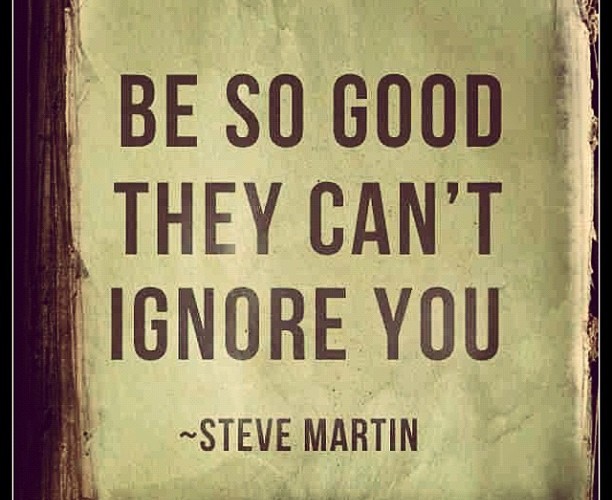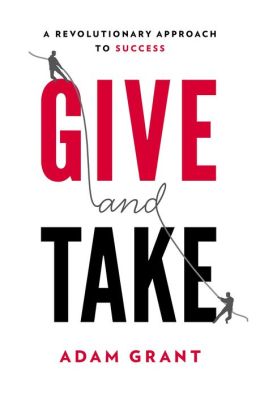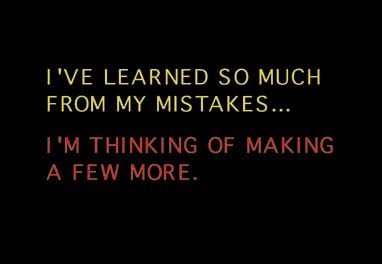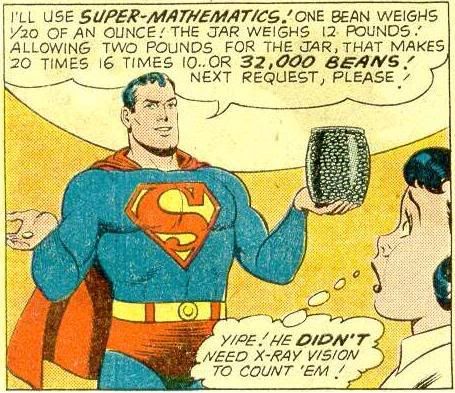Cal Newport on how you can be an expert and why you should *not* follow your passion
bsp; Cal Newport holds a PhD from MIT and is an assistant professor of Computer Science at Georgetown University. He runs the popular blog Study Hacks (which I highly recommend) and is the author of four books including, most recently, So Good They Can't Ignore You: Why Skills Trump Passion in the Quest for Work You Love. Cal and I talked about the secrets to becoming an expert, how deliberate practice works and why following your passion can be a *bad* idea.…
5 minutes
Adam Grant Teaches You The Right Way To Give And Take
am Grant is the youngest tenured and highest rated professor at the Wharton School of Business at the University of Pennsylvania. He is the author of the excellent book, Give and Take: A Revolutionary Approach to Success. I spoke with Adam about how nice guys finish last and first, what really leads to expertise and how empathy can beat objectivity, among other things. Nice Guys Finish Last – And First Adam: The big idea is that there's three fundamental styles of interaction…
5 minutes
Matthew Polly: What happens when you drop out of Princeton to move to the Shaolin Temple and master Kung Fu?
ntil a man is twenty-five, he still thinks, every so often, that under the right circumstances he could be the baddest motherfucker in the world. If I moved to a martial arts monastery in China and studied real hard for ten years. If my family was wiped out by Colombian drug dealers and I swore myself to revenge. If I got a fatal disease, had one year to live, devoted it to wiping out street crime. If I just dropped…
11 minutes
What are the secrets of improving learning and memory?
ve already posted a research round-up on becoming an expert at anything. That was focused on the big picture of how to master something over a period of years. This time let's get less macro and focus more on the nitty-gritty of what you need to do when you sit down, roll up your sleeves and try to learn something new. Yeah, It's Gonna Take Effort No, I'm not going to lecture you like Grandpa about the virtues of…
3 minutes
What’s the best way to learn from a book?
n't keep reading it over and over. Read it and write a one page summary. Via Daniel Coyle's excellent book The Little Book of Talent: 52 Tips for Improving Your Skills: Research shows that people who (wrote a summary) remember 50 percent more material over the long term than people who follow (repeatedly read). This is because of one of deep practice’s most fundamental rules: Learning is reaching. Passively reading a book— a relatively effortless process, letting the words wash…
1 min read
How good are the best?
high complexity jobs like professional and sales roles, the top 10% produce 80% more than average and 700% more than the bottom 10%. Via 80,000 hours (hat tip - Andy McKenzie): ...how much do different employees typically differ in output? There have been many studies looking at this very question, across a wide range of jobs, which are summarised in a meta-study by Hunter, Schmidt and Judiesch (6). Output is measured in a variety of ways. For salespeople, it’s the…
2 minutes
These Books Can Teach You To Be The Best At Anything
ter my post What does it take to become an expert at anything? a number of people have written, curious about where to learn more on the subject. A few of the best sources I pulled from are below, with links and descriptions: Bounce: Mozart, Federer, Picasso, Beckham, and the Science of Success "Backed by cutting-edge scientific research and case studies, Syed shatters long-held myths about meritocracy, talent, performance, and the mind. He explains why some people thrive under pressure…
3 minutes
What’s the sweet spot for optimal improvement?
ile practicing, you want to be succeeding on 50-80% of attempts. Fewer than that and you're going to be confused and feel like it's all luck. More success than that and you're not pushing yourself. Via Daniel Coyle's excellent book The Little Book of Talent: 52 Tips for Improving Your Skills: Comfort Zone Sensations: Ease, effortlessness. You’re working, but not reaching or struggling. Percentage of Successful Attempts: 80 percent and above. Sweet Spot Sensations: Frustration, difficulty, alertness to errors. You’re…
1 min read








